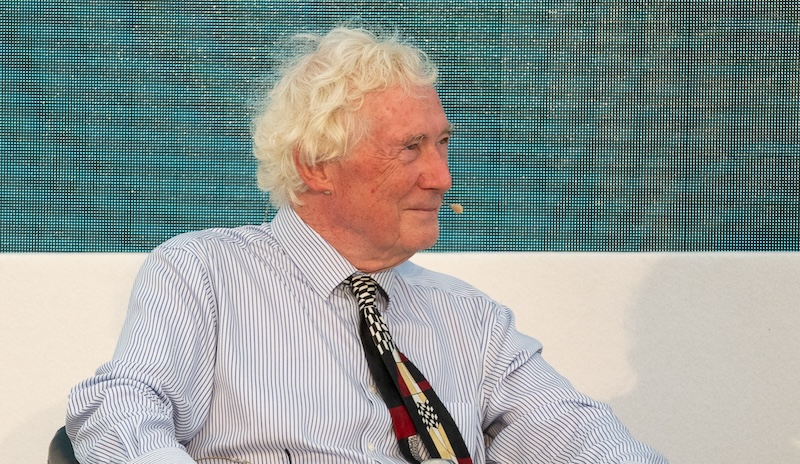Ex-Supreme issues stark warning at sun-soaked festival

Democracy is under threat and deserves more of our attention, argued former Supreme Court judge Lord Sumption during a moot at a festival (not Glastonbury) over the sweltering weekend.
Sumption, who has just published a new book on the subject of democracy and the rule of law, told a packed audience crowded into a tent at the Chalke History Festival that Trump’s rule: “Exhibits three classic symptoms of totalitarian government: a cult of personality around one individual, intolerance of dissent and total identification of one man with the state.” And these are the features “of a deterioration of a democratic society”.
Explaining why he believes people are turning to strongmen in a way that can be seen in the US, the former top judge said:
“They are driven by economic insecurity, and because they believe [a strong leader] will get things done. But it’s not true. Strongmen rule encourages decisions on the hoof and discourages consultation, encourages flattery at the expense of objective advice, self-interest at the expense of public interest.”
The reason why this is so dangerous to democracy is that ‘strongman’ government “is difficult to reverse”. Keeping his cool in the intense heat while wearing a dapper cream suit and one of his typically eye-catching ties: “[These] governments gradually pour out of the democracy bottle everything that was once inside it that made it democratic.”
Lord Sumption did not directly address whether or not such a situation could arise here in the UK, though he did point out that as the UK has no written constitution, “if someone is determined to break the mould, our position becomes very vulnerable.”
Speaking to Legal Cheek before the moot, Sumption said:
“We are taking democracy for granted. I don’t do optimism at the moment.”
Also during his sold-out slot at Chalke, Sumption expounded on his concerns around judicial overreach, by which he means courts developing a wider role for themselves and trespassing into policy.
He gave the example of assisted dying, a key issue for our time that came before the Supreme Court (in R (Nicklinson) v Ministry of Justice) whilst he was a justice there. “What I said in my judgment is that it is unsuitable for us to get involved in it. The only way to decide such an issue is by legislation.” Which is, of course, what happened last week when a bill was passed by the House of Commons (and is now with the House of Lords). He told the keen crowd: “I don’t think the law is a very good way of making very political decisions.”
Sumption was famously appointed to the Supreme Court (in 2012) even though he had not served as a full-time judge prior to that, though he spent many years as a barrister at Brick Court Chambers.
In a recent interview on BBC Radio 3, he was nostalgic for his time as an advocate at the bar: “It’s thrilling. It’s where the magic is.”
“The main thing about practising at the bar…. is the sense of personal responsibility, he said. “You are very exposed when you stand up there arguing cases. The preparation may be a team effort but the actual presentation of the case is a solitary business.”
For anyone wanting to become an advocate, it is worth noting that Lord S admitted there’s a certain amount of drama involved too: “It’s a histrionic profession… You have got to sound interesting. There is a place for humour and a good turn of phrase.”
And finally, he advised: “When you start a sentence, it should be so that no one is quite sure how it’s going to end.” Which is probably how the audience felt at the Festival.


